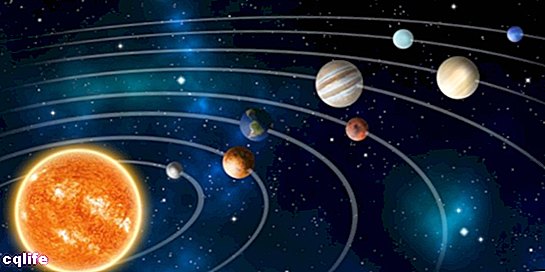We explain what a system is and what types of systems exist. System examples. Systems in computer science and biology.

What is a system?
A system is understood to be an ordered set of interrelated components, whether it is material or conceptual elements, endowed with a structure, a composition and a particular environment. It is a term that applies to various areas of knowledge, such as physical, biology and informatics or computing.
The world can be approached from a perspective systematic or systematist, in which all objects are part of some kind of system, from the particles of a atom to the cerebral cortex, the democracy representative or integer numbers. Seen this way, a system is nothing more than a segment of the reality that can be studied independently of the rest, but in which its components are interconnected.
The systems are object of study of the Systems Theory o General Systems Theory, a discipline that addresses them whatever they may be from a multiple, interdisciplinary perspective. According to her, any system is recognizable given its limits and interrelated and interdependent parts (its so-called subsystems), to the point that modifying one element necessarily modifies the operation of the rest of the system.
In a similar way, it is considered that a system is more than the mere sum of its parts, that is, within a system it is possible to foresee the behavior of its components if the others are modified, and also the systems have a purpose to fulfill, an ultimate goal that guarantees your success.
Ultimately, all systems tend to entropy (mess) and eventually fall apart into a bigger one.
System types
Systems can be classified into two broad categories:
- Conceptual systems. Is about sets ordered and interrelated concepts and ideas, which can be of four different types: individuals, predicates, sets or operators. They are abstract, intangible.
- Material systems. Rather, they are tangible, concrete, and made up of physical components, that is, things with specific properties, such as Energy, history, position, etc.
System examples

Systems abound in our daily lives, such as:
- Circulatory system. Of the human body, made up of the heart, veins and arteries, as well as the blood that carries oxygen throughout the body.
- Closed thermal system. As is the case with a thermos in which we keep hot coffee, and the insulating material helps to minimize the loss of heat, keeping the caloric energy in the particle system of the liquid.
- Linguistic system. In the case of the language we speak, composed of signs and sounds, and the ability to create complex meanings (meanings) with it.
- Solar system. Of which is part of us planet, and which is composed of stars celestial orbiting Sun on elliptical trajectories, attracted by their force of gravity.
- Electric system. Present in our homes and activated by turning on a switch to provide electricity to the light bulb that illuminates the room, for example.
Computer systems
In computing, a system is understood as a set of data arranged according to a series of instructions or algorithms, which allow their location and quick and simple retrieval.
That's a information system or computer science, a concept that is also used by other information sciences such as library science, but in the case of computer science it is managed automatically by a computer.
Systems in biology
In biologySimilarly, the notion of system is often used to refer to the living or inanimate members of a ecosystem or a habitat specific, which are usually interrelated through cycles of transmission of the matter (Trophic chains) and also depend on the presence of the other and the abundance of natural resources as the sunlight, the Water and the organic material decomposing (in the case of plants and others producer organisms power).
